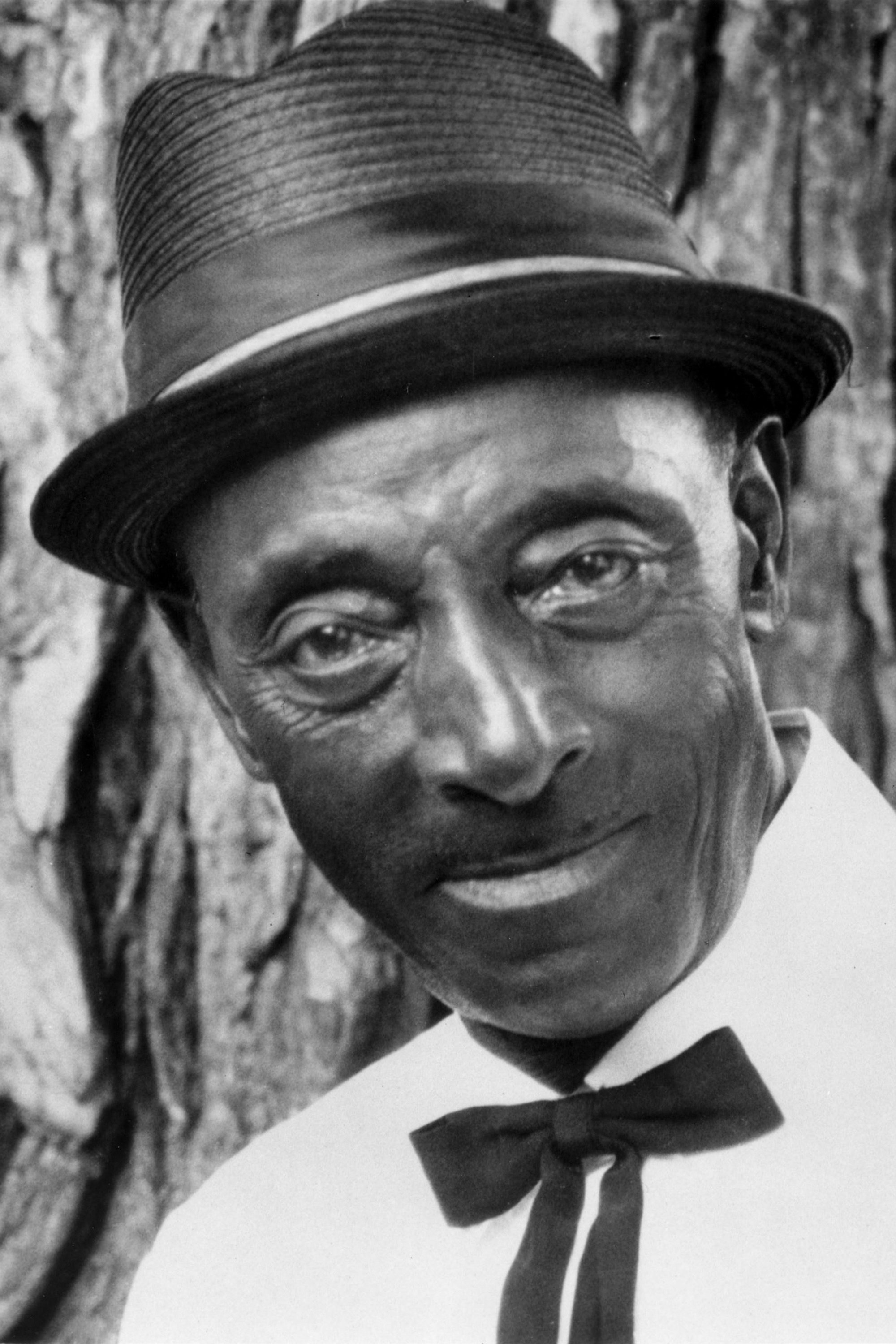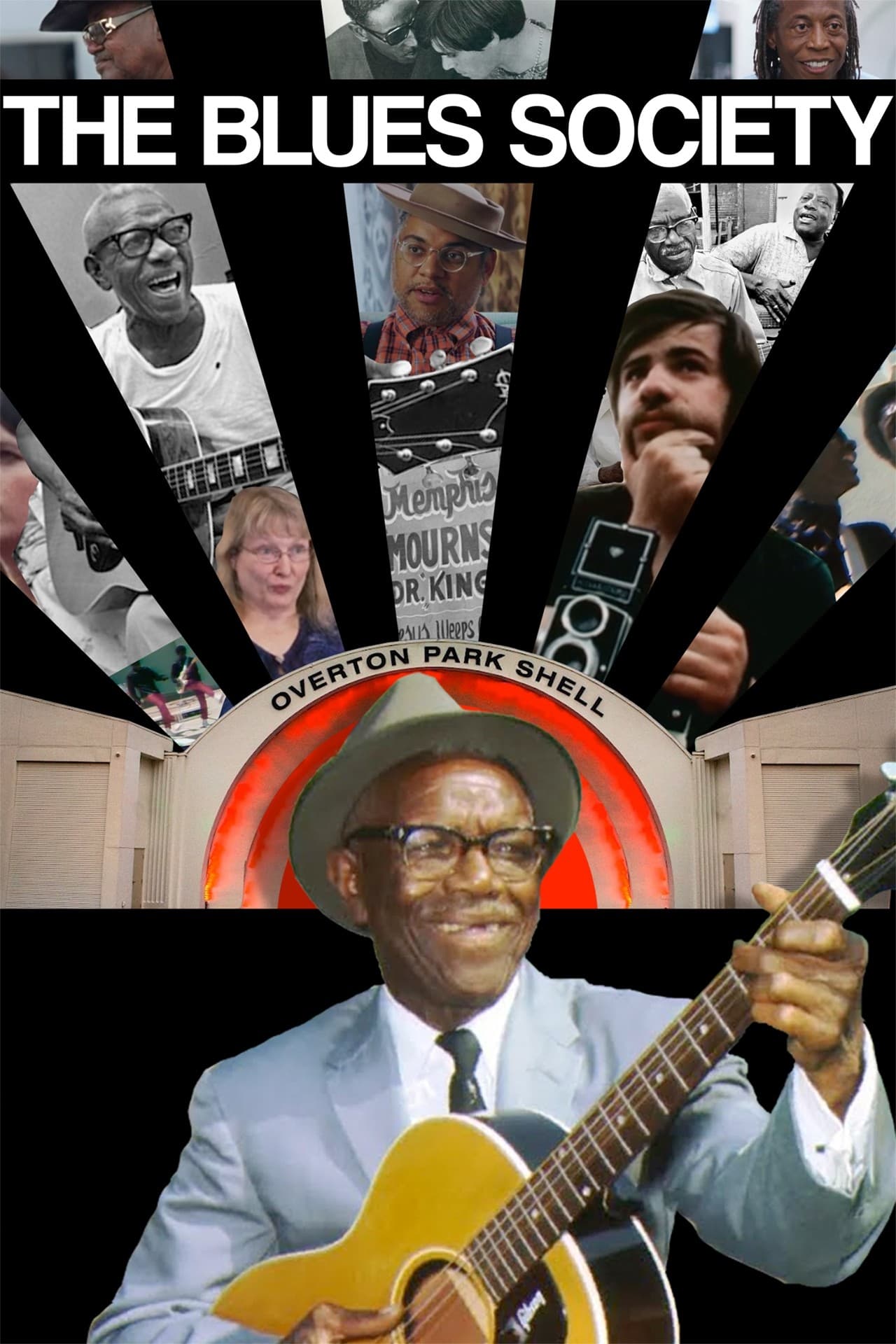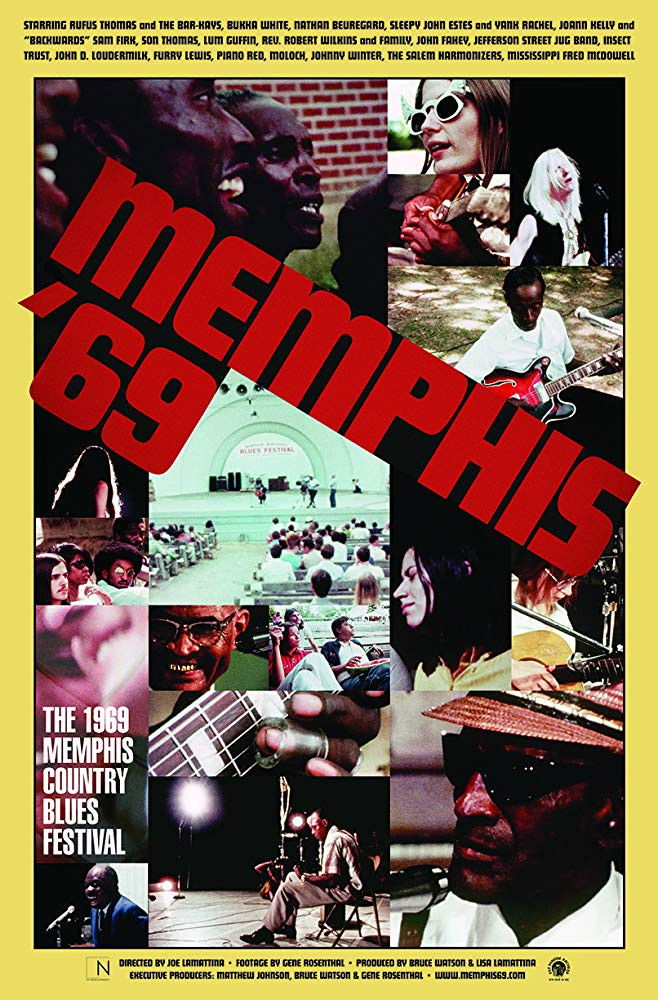

In the segregated Memphis of the 1960s, blues masters and beatniks created a music festival that rocked the foundations of a conservative world.

It’s the Summer of 1969. The temperature hovers around 105 degrees on a humid weekend in Memphis, Tennessee. It’s only been a year since the assassination of Dr. Martin Luther King Jr. But on this particular weekend, everyone in town, all races, creeds and colors have come out for the Fourth Annual Memphis Country Blues Festival. The lineup is the most ambitious in years, welcoming blues masters like Bukka White, Sleepy John Estes, Furry Lewis and the 106 year-old Nathan Beauregard, coupled with more notable headliners like Rufus Thomas & The Bar-Kays, John Fahey and rocker Johnny Winter. One attendee that year was Gene Rosenthal, who brought along a couple of cameras, a small crew and left with 40,000 feet of color film that was left untouched for nearly 50 years….until now. ‘Memphis 69’ is a time capsule. If you’re a blues enthusiast, watching this film feels like you’ve opened up a treasure chest and discovered that you’ve hit the motherload.
Fred McDowell, a seminal figure in Mississippi hill country blues, was one of the most vibrant performers of the 1960s blues revival. He was a sharecropper and local entertainer in 1959 when he made his first recordings at his home on a farm north of Como for noted folklorist Alan Lomax. The depth and originality of McDowell’s music brought him such worldwide acclaim that he was able to record and tour prolifically during his final years.
By browsing this website, you accept our cookies policy.